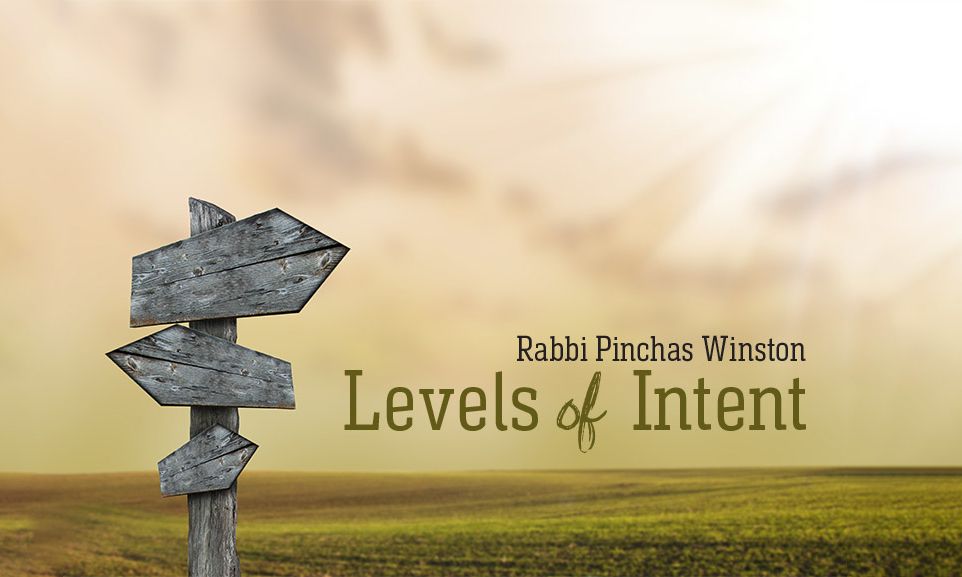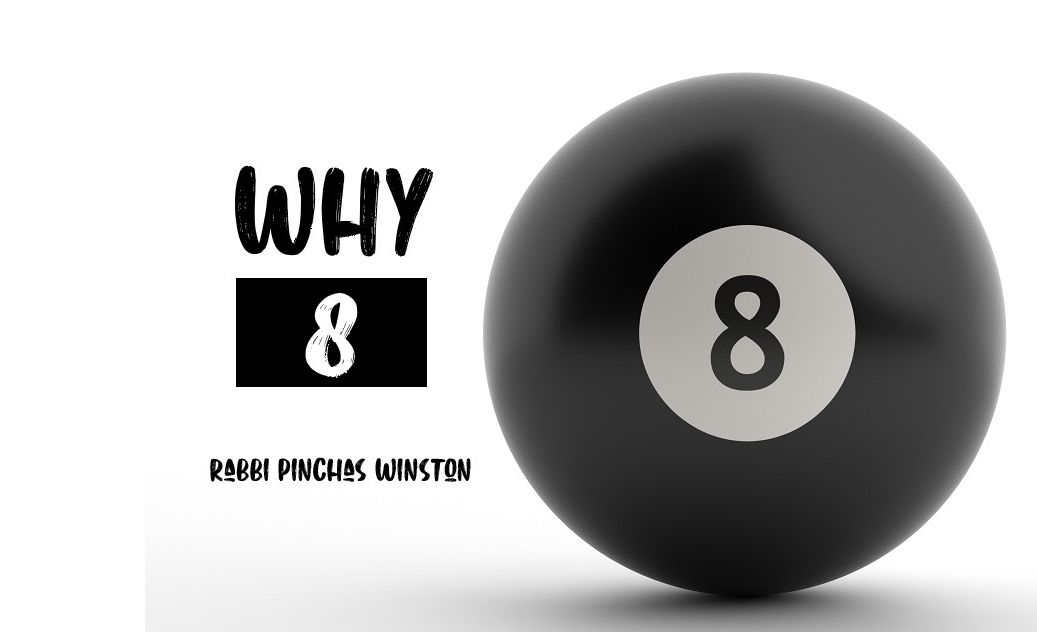
Korach: Five Levels of Intent
Intention can be a tricky thing. Sometimes it originates from deep within our unconscious mind and at a time that we are barely paying attention…

:א וַיִּקַּ֣ח קֹ֔רַח בֶּן־יִצְהָ֥ר בֶּן־קְהָ֖ת בֶּן־לֵוִ֑י וְדָתָ֨ן וַֽאֲבִירָ֜ם בְּנֵ֧י אֱלִיאָ֛ב וְא֥וֹן בֶּן־פֶּ֖לֶת בְּנֵ֥י רְאוּבֵֽן
:ב וַיָּקֻ֨מוּ֙ לִפְנֵ֣י משֶׁ֔ה וַֽאֲנָשִׁ֥ים מִבְּנֵֽי־יִשְׂרָאֵ֖ל חֲמִשִּׁ֣ים וּמָאתָ֑יִם נְשִׂיאֵ֥י עֵדָ֛ה קְרִאֵ֥י מוֹעֵ֖ד אַנְשֵׁי־שֵֽׁם
ג וַיִּקָּֽהֲל֞וּ עַל־משֶׁ֣ה וְעַל־אַֽהֲרֹ֗ן וַיֹּֽאמְר֣וּ אֲלֵהֶם֘ רַב־לָכֶם֒ כִּ֤י כָל־הָֽעֵדָה֙ כֻּלָּ֣ם קְדשִׁ֔ים וּבְתוֹכָ֖ם יְהֹוָ֑ה וּמַדּ֥וּעַ תִּתְנַשְּׂא֖וּ עַל־קְהַ֥ל יְהֹוָֽה
Korach, the son of Yitzhar, the grandson of Kehas, and the great-grandson of Levi; Dasan and Aviram, sons of Eliav; and On, the son of Pelet, descendants of Reuven, began a rebellion against Moshe, along with 250 Israelites who were men of rank and distinction. They assembled against Moshe and Aharon and told them, “You take too much for yourselves. The entire congregation is holy and G-d is with them [too]. Why do you elevate yourselves above the people of G-d?” (Bamidbar 16:1-3)
L’shaim shamayim — for the sake of Heaven. This is the term, traditionally, that has meant doing an act without any selfish purpose whatsoever, except to make Heaven happy. It is the level of intention that the G-d-fearing Jew (which is what every Jew is supposed to try and become) is obligated to try and achieve in all aspects of life.
In other words, as important as it is to do the “right” thing, it is even more important to do that right thing for the right reason. For example, giving tzedakah is a mitzvah; giving tzedakah because this is what G-d expects us to do, is an even greater mitzvah, especially when no personal benefit is to be had.
Intention can be a tricky thing. Sometimes it originates from deep within our unconscious mind and at a time that we are barely paying attention, and therefore, we may not even be aware of our intentions until they find expression in the physical world. However, by that point, it may be too late for us to trace our intentions back to their source, and, we can come to believe that what we are doing is for Heaven’s sake when, in fact, it is not really. In fact, it is amazing what people do “l’shaim shamayim” (and I don’t mean this in a flattering way).
We have a choice this week to view Korach and his followers as a bunch of hoodlums following an egotistical leader, trouble-makers in the worse sense of the word, and cheer for Moshe after the earth opens up and eradicates the evil from within the holy Jewish camp. That would certainly make life simpler, answering important questions such as, “How could they rebel against the great and humble MOSHE RABBEINU, especially with the Clouds of Glory enveloping the camp?
The answer is, because they were completely selfish fools. Next question.
Ah, but life is seldom so simple. Fools, they were, in the end. However, in the beginning, they were men of great stature, as was Korach himself. And once we admit that, then, we are left with the question all over again: How could they do it? How could Korach convince so many important people to rebel against Moshe Rabbeinu himself?
This time, the answer is, the “l’shaim shamayim” factor. Korach, one can assume, made good points when presenting his case to those willing to hear him out. However, in spite of Korach’s logic, getting so many prominent Jews to tow his party line was still a great feat, and, would never have happened had he not appeared l’shaim Shamayim.
For, one of the ways that we convince others that our convictions are true and worthy when they can’t figure it out for themselves is by how sincere we appear when arguing our case. When it comes to fundraising, that is often very much the case; sincere people can do wonders at getting donors to give more money than they ever imagined they would. Somehow sincerity is associated with rightness, and counts for an awful lot when it comes to gaining and maintaining credibility in the eyes of others.
“I didn’t intend to give so much, but he seemed so sincere. It was hard to turn him down.”
Sincerity is one of the most powerful tools known to mankind. Winston Churchill used it to encourage and inspire the Allies to fight against Hitler and the Nazis at a time that their hope and pride had been at an all-time low. Hitler (yemach sh’mo v’zichro), used his intense sincerity to mobilize 50,000,000 Germans to spend unbelievable amounts of time, money, and energy, just to annihilate the tiny, innocent Jewish nation, and in the most inhumane ways as well.
And Korach, the Midrash says, used his sincerity to gather his own personal army against Moshe Rabbeinu in the desert.
The reason for the power of intention is, because, according to Kabbalah, it corresponds to the highest level of soul, Yechidah. There are basically five steps to carrying out an act, and they are:
- Will to the perform something (Ratzon רצון): Yechidah יחידה
- Original planning of how to execute to the will to perform (Hirhur חיהור): Chiyah חיה
- Actual planning of methodology (Machshavah מחשבה): Neshamah נשמה
- Speaking about doing it, to make it real (Dibur דיבור): Ruach רוח
- Actual performance of the act (Ma’aseh מעשה): Nefesh נפש
Another way to look at these five levels is as five levels of consciousness, ranging from the most sublime and subtle to the most base and obvious. Hence, the original intention of a person emanates from a very high level of soul, and therefore, is quite powerful.
However, in creation, there is the concept “zu l’umat zu” (זו לעומת זו)– “this corresponds to this.” What this means is that, for everything positive in the spiritual world, there is a corresponding negative reality. We need this balance of power for the sake of free-will choice, without which one side would always prevail.
However, what we learn from this is that there can be “negative will” just as there is “positive will.” Both are very powerful — one positively and one negatively. It is our job in life to figure out which one is driving our decision-making process, because, both emanate from within, and both can appear, on the surface, as being pure sincerity for a G-d cause. That is, until G-d steps in and reveals the truth behind what we do, and why we say we do it.











Tell us what you think!
Thank you for your comment!
It will be published after approval by the Editor.